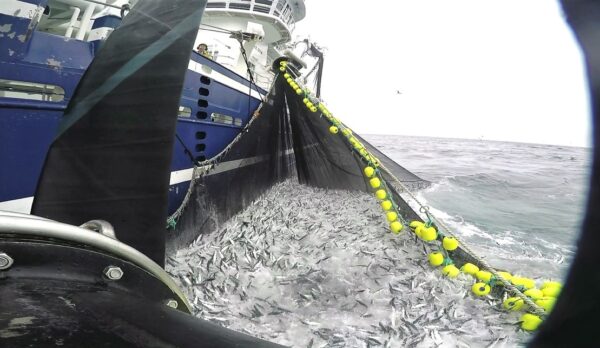Marine researchers with the Norwegian Institute of Marine Research have discovered that large quantities of mackerel pressed together in a fish net can affect the fish’s quality.
A new study from the Institute of Marine Research (HI) shows that fish vitality is a good measure of welfare. The marine scientists found this out by combining several practical investigations.
“When you fish for mackerel with a purse seine, the catch is “snared” tightly together in large quantities, to make it easier to pump the fish on board the boat,” explains HI researcher Neil Anders.
“We wanted to find a way to measure how the fish feels when it is pressed together like this,” says research colleague Michael Breen.
First, the marine scientists “recreated” how the fish can feel outside in a fishing net, by cramming mackerel together in breeding cages. Afterwards, the researchers tested the “shape” of the fish, through various tests, to find out which physical and behavioural stress responses it showed.
Together, the results gave a measure of the vitality of each individual fish.
The marine researchers then took their experience and methods from the cage to a commercial purse seine boat. There they also examined the stress response, blood tests and general condition of individual fish from the catch.
Larger catches and longer pumping times resulted in poorer conditions
The results were clear: Animal welfare in the catching process was negatively affected when large catches had to be pressed together to be pumped into the boat. (Photo: Institute of Marine Research Norway (IMR)
“It was clear that larger catches result in longer pumping times, which increases the negative consequences for welfare. We saw that vitality deteriorated, and in the blood samples we could measure that fish from large catches had been very stressed,” says Breen.
“The study provides a good indication of how animal welfare can be improved in the trapping process,” Anders believes. “For example, by going after the smaller shoals. If the catches are smaller, the time it takes to pump the fish on board is shorter, and then welfare is better.”
Further information from the Norwegian Institute of Marine Research can be found here.
